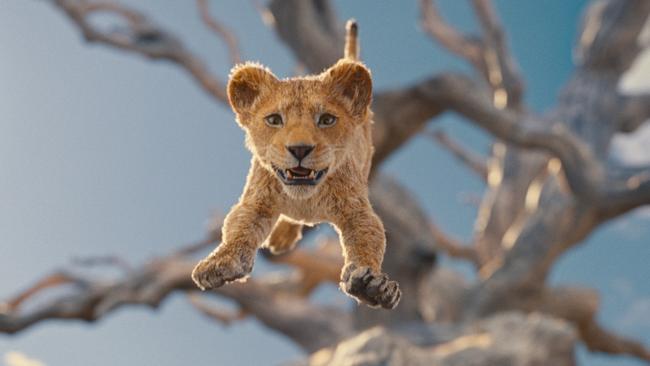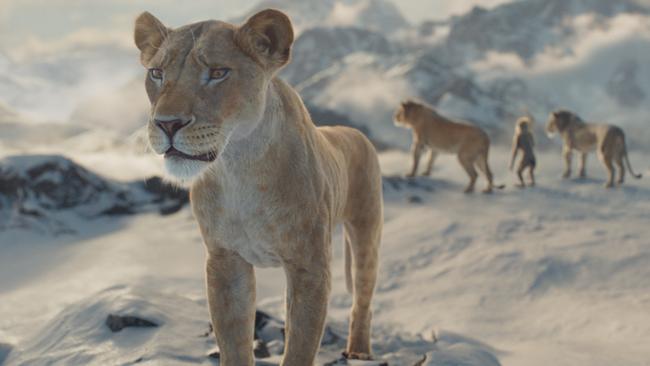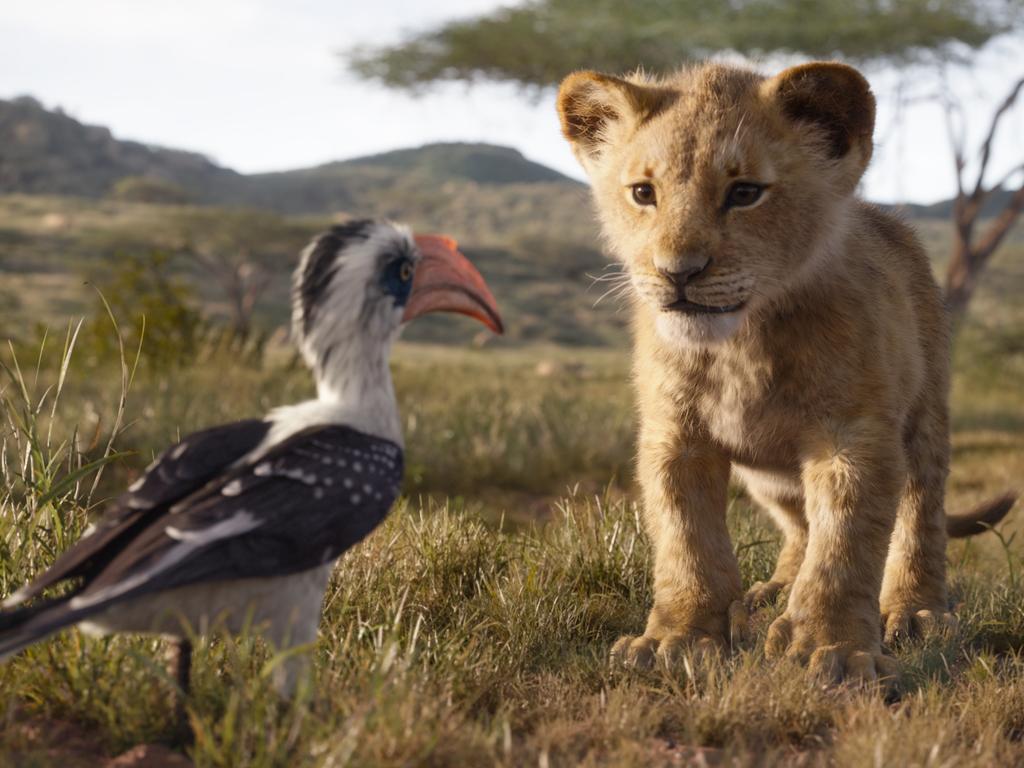Mufasa: The Lion King has the right amount of bite for young viewers
Two young lions are at loggerheads, with a young lionness between them, and the baddies are on the trail and out for blood. If this sounds like a similar story, it’s because it is.

After watching the Disney animation Mufasa: The Lion King I looked up what lions eat in the wild. The answer is just about anything, with zebra high on the list. No one shared this fact sheet with the creators of this movie, which runs for two hours without any of the lions, who often complain that they are starving, so much as nibbling on a zebra or any of the other prey animals around them.
I suppose this egalitarian representation of nature – not red in tooth and claw – is designed to fit with the primary school target audience, though I suspect even they would like to see a few more bites in the fights.
It’s the main villain, a huge white lion named Kiros (voiced by Mads Mikkelsen), who has a bit of fun with this in a movie that doesn’t pull its own leg nearly enough.
“The circle of life,” he purrs, repeating the most quoted line in the film, “is a pretty way of saying there are predators and there is prey.” He’s right, but to see this on screen flick to a David Attenborough documentary, where lions behave like lions rather than croon songs written by Lin-Manuel Miranda.
This movie is a prequel to the 2019 movie The Lion King, which was a reboot of the 1994 movie The Lion King. It is shot in photorealistic animation, as was its predecessor. The 1994 movie is a more traditional animation.
It is the origin story of Mufasa (Aaron Pierre), father of Simba, and Taka (Kelvin Harrison Jr), a leonine princeling who is earmarked to be king of a pride.
It’s told in retrospect to Simba’s daughter by Rafiki the mandrill (John Kani, returning in the role), a wannabe philosopher who sounds as if he’s reading from a Kmart self-help book. Listening in, chipping in and also returning from the 2019 movie are Timon the meerkat (Billy Eichner) and Pumbaa the warthog (Seth Rogan). They offer the light relief, with occasional in-jokes about the Lion King franchise, but it is only light.
Here’s the guts of the story Rafiki tells. A flooded river separates the cub Mufasa from his parents. He is pulled from the waters by Taka and the two become like brothers (a slight shift from the 1994 and 2019 films, where they are brothers).
Time passes and the cubs grow into young lions. Together they go in search of a promised land. An altercation with the white lions results in the death of one of Kiros’s sons. He vows revenge.

So we have an orphan/quest story and a revenge story rolled into one as Mufasa and Taka paw the jungle path. They are joined by a young lioness, Sarabi (Tiffany Boone), and the young Rafiki.
It’s Sarabi who sparks the main conflict. Taka fancies her but she fancies Mufasa. The best song, Tell Me It’s You, is a duet in which Mufasa and Sarabi declare their love. If something can be cornily beautiful, then this is it.
So now we have the two young lions at loggerheads, a young lionness between them, and the baddies on the trail and out for blood. If this sounds like a similar story it’s because it is.
The one drop of blood that is spilt is when Taka is slashed across his face. The scar that leaves will be a familiar sight to anyone who has seen the previous films.
This film is directed by Barry Jenkins, who won a best picture Oscar for his outstanding 2016 drama Moonlight, and written by Jeff Nathanson, who wrote the 2019 sequel to this prequel.
The director keeps a firm if predictable hand on the tiller – the action scenes, such as lions trapped in that flooded river and an elephant stampede – are impressive but the script is limp.
This is a school holidays movie that will keep younger viewers in their seats. Aside from some striking visuals, it doesn’t have much to offer the adults sitting next to them.
Mufasa: The Lion King (PG)
118 minutes
In cinemas
★★½







To join the conversation, please log in. Don't have an account? Register
Join the conversation, you are commenting as Logout